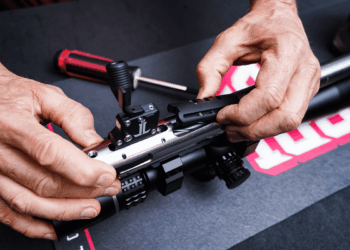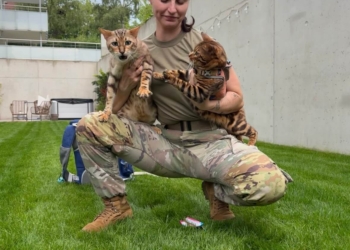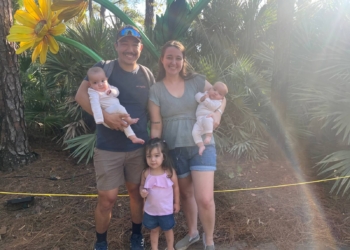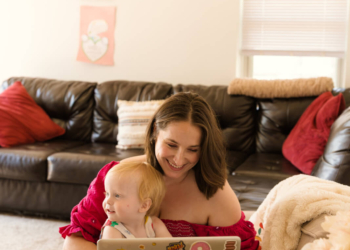Roughly 11% of veterans call Maine home, benefitting from low unemployment rates, property tax exemptions and tax exclusions for military retirement pay. One organization, Boots2Roots is working to bring awareness to the pro-veteran atmosphere offered by The Pine Tree State.
Disa Chadwick, a veteran spouse who currently works as a military transition specialist for Boots2Roots, grew up in Dayton, Maine. The town was so small that each grade up until middle school only had one teacher or classroom. Her knowledge of the military was, she says, nonexistent.
“I met my husband in middle school, and we started dating in high school. His stepfather was in the Air Force and had always talked to him about what a great opportunity it was,” she said. “When he decided to enlist after we graduated, I dove into learning everything I could about the military lifestyle and what it would look like to be his wife.”
The day before his scheduled boot camp graduation was Sept. 11, 2001.
“The planes were grounded, and his graduation was a closed service because the bases were all locked down tight,” Chadwick said. “I was able to go see him a month later. He entered security forces, and our first duty station was Alaska, which felt like a half a world away. He was deployed six to seven months out of the year, constantly in and out.”
RELATED: Boots2Roots assists veterans in finding employment, community
When her husband had the opportunity to cross train into logistics and was told he’d deploy less, he made the transition. But in true military fashion, he was still gone just as much. The deployments may have been less frequent, but they were much longer, Chadwick added.
“Before becoming a military spouse, I was extremely shy to the point that I wouldn’t speak to anyone unless they spoke to me first,” she said. “Moving and experiencing all the challenges I did, especially as a new mom, forced me to put myself out there. ”
In December of 2020, her husband called her from a deployment in the Middle East to say he would be retiring in three months.
“Of course I was immediately freaking out. Our oldest was graduating high school that summer and we had so much to plan for all at once,” Chadwick said.
She was open in sharing that the frequent deployments became more and more difficult as her husband got older. Watching his children grow up through pictures and videos wasn’t bearable any longer, she added. He was actually scheduled to miss a graduation but due to his retirement, deployment orders were cut short and he made it in time.
The Chadwicks knew they wanted to retire back home in Maine. Through friends, her husband was introduced to Boots2Roots, an organization that assists active-duty military members, veterans and spouses to find meaningful work and put down roots in Maine.
“While he was going through the program, he explained everything to me and how he was being connected to all these different businesses in Maine,” she said. “One of those companies saw his resume on Boots2Roots and flew him up for an interview after he got back from his deployment, and he got the job.”
Boots2Roots focuses on two main areas for transitioning service members:
- Find meaningful employment within two months of arriving in Maine,
- Remain in their first post-military job for at least one year.
Both are vital to the post-military quality of life, which Chadwick shares has its own challenges.
“As a military spouse I often say that you cannot prepare for what this life is like and the same is true for when it comes time to leave it,” she said.
The family lived with her husband’s sister for six months until they were able to get settled into their home. When Chadwick saw a position open working for Boots2Roots, she applied. “I think it helps that I am so emerged in the community,” Chadwick said. “And with living here in Maine myself, I’m able to connect in ways that may be harder for other people.”
She explained that the program also provides self-assessment, resume, interview coaching and peer mentoring.
Outside of the valuable tools offered by Boots2Roots, Chadwick highlighted the vital importance of having access to the networking opportunities. Being able to stay involved and part of the military community helped her family transition, she says.
“Honestly, it almost feels like they’re my children. I’m so proud of them when they get a position and I love staying in touch with them afterwards to continue following up on their journey,” she said. “That’s what it’s all about, being a military family through every part of the story; even once the uniform is hung up.”











































